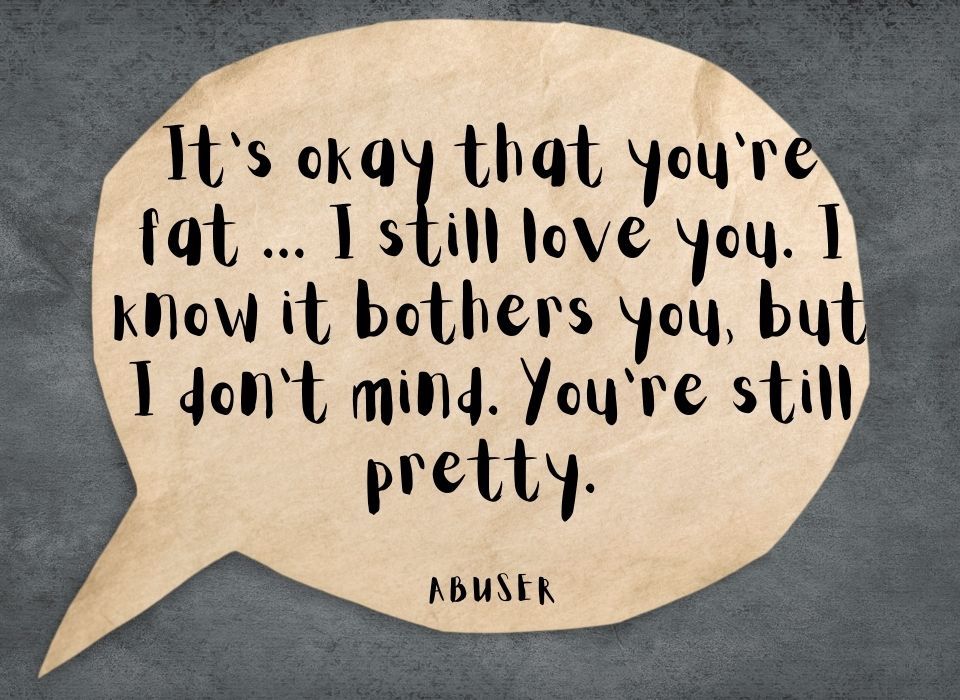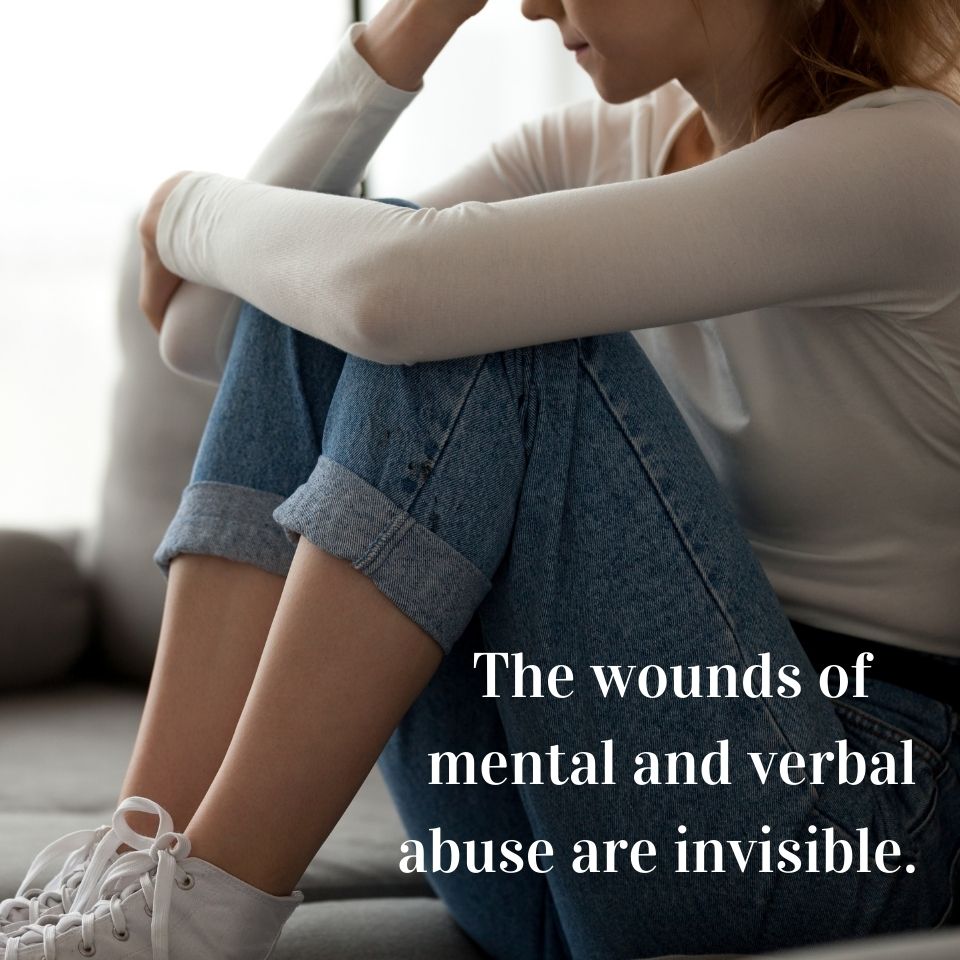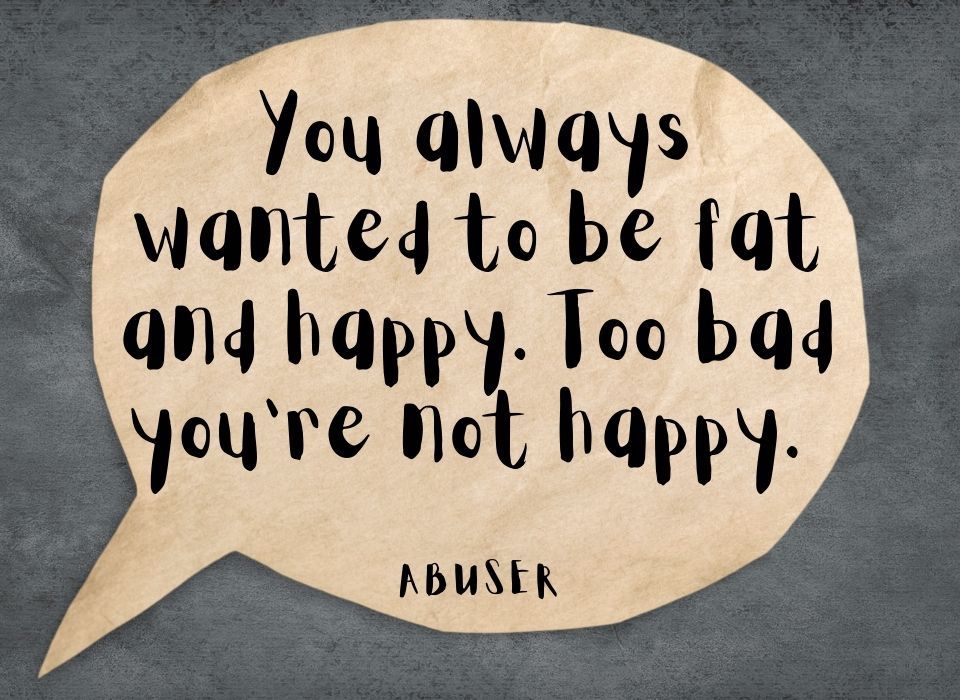Recognizing Mental and Emotional Abuse
Part two of my domestic abuse series, covers types of abuse that many don’t recognize, even those in the abusive situation. Used interchangeably, mental and emotional abuse are both ways for someone to control another person. The abuse comes from spoken offenses (verbal abuse) such as threats, criticism and bullying. An abuser uses manipulation, shaming and intimidation to undermine a person’s mental health, chip away at her self-esteem and dominate his victim.

Recognizing Mental and Emotional Abuse
As I mentioned in this first part of this series, sometimes those in abusive relationships don’t realize what they experience on a daily basis isn’t the norm. I created the following list after researching a few different websites about mental and emotional abuse. Consider the following questions and decide for yourself if any sound familiar.

Does this person:
- Expect you to drop everything and meet his needs?
- Demand you spend all of your time together?
- Criticize you for not completing tasks according to his standards.
- Expect you to share all his opinions?
- Refuse to accept your feelings by trying to define how you should feel?
- Accuse you of being “too sensitive,” “too emotional,” or “crazy?”
- Start arguments for the sake of arguing?
- Make confusing and contradictory statements?
- Have drastic mood changes or sudden emotional outbursts?
- Behave so erratically and unpredictably that you feel like you are “walking on eggshells?”
- Pick fights or make fun of your shortcomings in public?
- Treat you like you are inferior?
- Make jokes that make you look foolish?
- Tell you that your opinions, ideas, values, and thoughts are stupid, illogical, or “don’t make sense?”
- Try to control who you spend time with?
- Monitor your text messages, mail or email?
- Accuse you of cheating and being jealous of outside relationships?
- Demand to know where you are at all times?
- Treat you like his possession or property?
- Belittle your accomplishments or even claim responsibly for your success?
- Do things that he knows pushes your buttons every chance he gets?
- Tell you that you’re lucky to be with him or that you’ll never find someone better?
Those who experience physical abuse were almost always abused mentally and emotionally first.
Physical Symptoms
Now that you’ve read some of the things the abuser may do, consider the following physical symptoms a victim may experience that I found at healthline.com. These symptoms often go unexplained, even after numerous medical exams and tests.

You may notice:
- Appetite changes
- Upset stomach or nausea
- Stomach pain and other gastrointestinal distress
- Muscle aches and pains
- Insomnia
- Fatigue

Victims of Mental and Emotional Abuse
As I mentioned in the beginning of this article, many victims of mental and emotional abuse don’t realize they are being abused because usually it’s not physical. These invisible wounds may include low self-esteem, self-doubt, feelings of inadequacy or worthlessness. Often, victims develop coping mechanisms to deal with the abuse. This may develop into devastating long term effects which may include depression, anxiety, post-traumatic stress disorder and dependency on alcohol, drugs or even food. However, mental and emotional abuse doesn’t have to leave a lasting impact. Victims can learn to cope and overcome the abuse they experienced through intervention and counseling.
You deserve to be treated with respect and kindness.
Recognizing and accepting that you (or someone you know) is in an abusive relationship is just the beginning of what could become a very long journey. However, it is a start.
Read part one of my series on domestic abuse here.
This article first appear in Women’s Outdoor News.

